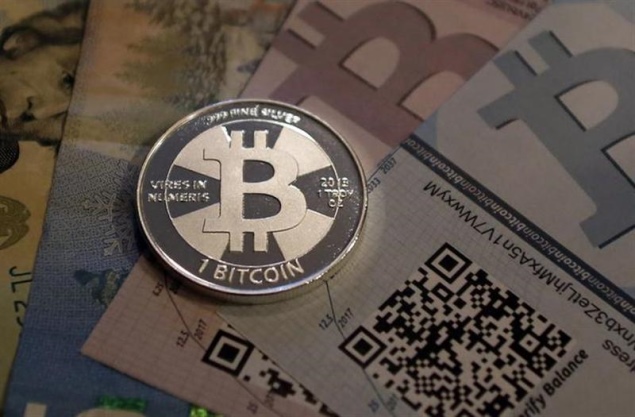- Home
- Internet
- Internet News
- Bitcoin, other virtual currencies vulnerable to money laundering: US Justice
Bitcoin, other virtual currencies vulnerable to money laundering: US Justice

"Many are still struggling with implementing appropriate anti-money laundering, know-your-customer and customer due diligence programs," said Mythili Raman, the acting assistant attorney general for the Justice Department's Criminal Division, in prepared testimony before a U.S. Senate panel.
"As members of the U.S. financial community, virtual currency services can and must safeguard themselves from exploitation by criminals and terrorists by implementing legally required anti-money laundering and know-your-customer controls."
Raman will appear alongside top officials from the Secret Service and Financial Crimes Enforcement Network before the Senate Homeland Security Committee on Monday, when they will answer questions about the growing use of digital currencies such as Bitcoin, and whether the government is doing enough to police the market.
Virtual currencies or digital cash have increasingly become a popular new way to purchase goods or services.
They are not regulated or issued by a central bank. They have been touted by some as an alternative currency in countries facing financial instability.
The most popular virtual currency is Bitcoin, which exists through an open-source software program and whose supply is controlled by a computer algorithm.
But critics have raised concerns about a lack of regulatory oversight over virtual currencies and the fact that some of them can be transferred anonymously, raising fears that they could be used by scam artists.
Over the past year, U.S. authorities have taken action against several players in the digital currency space.
(Also see: New York announces a probe into virtual currencies like Bitcoin)
In May, U.S. authorities seized two accounts linked to the Tokyo-based exchange Mt. Gox, the major operator for the Bitcoin digital marketplace, after it failed to register with FinCEN.
Around the same time, U.S. criminal authorities also indicted the operators of the digital currency exchange Liberty Reserve and accused the company of helping criminals launder more than $6 billion in funds linked to everything from child pornography to software used for bank hacking.
In October, federal authorities shut down an online marketplace called Silk Road that was used for purchasing drugs and hiring hit men.
Federal officials will tell lawmakers on Monday that while some digital currency operators are striving to comply with U.S. laws, they still remain concerned that even these may become "unwitting conduits for illicit transactions."
© Thomson Reuters 2013
Get your daily dose of tech news, reviews, and insights, in under 80 characters on Gadgets 360 Turbo. Connect with fellow tech lovers on our Forum. Follow us on X, Facebook, WhatsApp, Threads and Google News for instant updates. Catch all the action on our YouTube channel.
Related Stories
- Samsung Galaxy Unpacked 2026
- iPhone 17 Pro Max
- ChatGPT
- iOS 26
- Laptop Under 50000
- Smartwatch Under 10000
- Apple Vision Pro
- Oneplus 12
- OnePlus Nord CE 3 Lite 5G
- iPhone 13
- Xiaomi 14 Pro
- Oppo Find N3
- Tecno Spark Go (2023)
- Realme V30
- Best Phones Under 25000
- Samsung Galaxy S24 Series
- Cryptocurrency
- iQoo 12
- Samsung Galaxy S24 Ultra
- Giottus
- Samsung Galaxy Z Flip 5
- Apple 'Scary Fast'
- Housefull 5
- GoPro Hero 12 Black Review
- Invincible Season 2
- JioGlass
- HD Ready TV
- Latest Mobile Phones
- Compare Phones
- Tecno Pova Curve 2 5G
- Lava Yuva Star 3
- Honor X6d
- OPPO K14x 5G
- Samsung Galaxy F70e 5G
- iQOO 15 Ultra
- OPPO A6v 5G
- OPPO A6i+ 5G
- Asus Vivobook 16 (M1605NAQ)
- Asus Vivobook 15 (2026)
- Brave Ark 2-in-1
- Black Shark Gaming Tablet
- boAt Chrome Iris
- HMD Watch P1
- Haier H5E Series
- Acerpure Nitro Z Series 100-inch QLED TV
- Asus ROG Ally
- Nintendo Switch Lite
- Haier 1.6 Ton 5 Star Inverter Split AC (HSU19G-MZAID5BN-INV)
- Haier 1.6 Ton 5 Star Inverter Split AC (HSU19G-MZAIM5BN-INV)







![[Partner Content] OPPO Reno15 Series: AI Portrait Camera, Popout and First Compact Reno](https://www.gadgets360.com/static/mobile/images/spacer.png)









